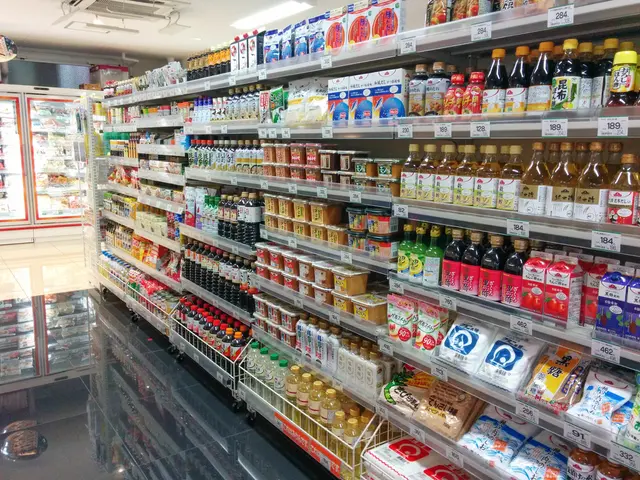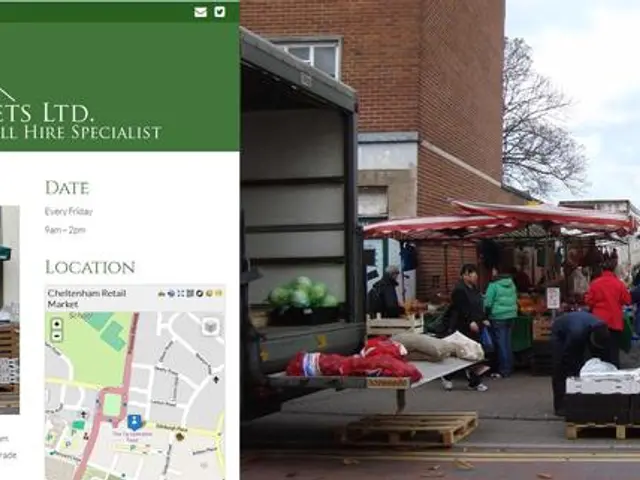U.S. Retailers Exult Over Approval of Biden's $1.9 Trillion Pandemic Aid Package in the Senate
The American Rescue Plan Act (ARPA), a $1.9 trillion pandemic relief package, recently passed by the U.S. Senate, has brought a significant boost to small businesses and the retail industry. The bill, aimed at mitigating economic damage caused by the pandemic, provides direct financial aid, targeted assistance to impacted industries, and support for workers [1][5].
Key Impacts on Small Businesses and Retail:
- Financial Assistance: The relief package allocates funds to provide direct financial support to small businesses, enabling them to maintain operations, cover payroll, and avoid closures during economic disruptions [1][5].
- Aid to Impacted Industries: Industries heavily affected by COVID-19 restrictions, including retail, tourism, travel, and hospitality, receive targeted aid to support recovery efforts and maintain employment [5].
- Support for Workers: The package prioritizes payments to essential workers and provides funding to cover jobs and wages in small businesses and other sectors during the crisis [5].
The bill's provisions also extend and enhance unemployment insurance programs, offering income support for workers who have lost jobs due to the pandemic [1][5]. Although specifics on unemployment benefit changes were not provided in the search results, the overall goal was to stabilize households economically and indirectly support consumer demand crucial for the retail sector.
National Retail Federation CEO Matthew Shay emphasized that ensuring quick and safe vaccination of Americans is the most critical component of the legislation [2].
The economy added 379,000 jobs last month, pushing the unemployment rate down to 6.2% from January's 6.3%. The swift development and deployment of vaccines, along with the economic relief provided by ARPA, is noted to add momentum to retail [3].
According to research from small business platform Alignable, nearly half of small retailers are struggling to pay rent in March [4]. However, the financial aid provided by ARPA and the improving public health picture provide an economic tailwind that benefits retailers of all sizes and types [6].
Wells Fargo economists Azhar Iqbal and Hop Mathews have revised their forecast upward for U.S. real GDP growth this year, expecting it to rise 6.2%. This anticipated growth would be the fastest recovery since the late 1950s [7].
The bill contains direct relief of $1,400 per person to 85% of consumers, unemployment support, and investments to expand and speed up the manufacture and distribution of vaccines [1]. It also includes $50 billion in aid to small businesses [5]. The House is expected to approve the Senate's changes early this week.
The passage of the bill was along Democratic party lines [8]. The bill contains several anti-poverty measures, as per the president's remarks [9]. The federal unemployment benefits are kept at $300 per week until September, as per the COVID relief provision in the recently passed bill [10].
In conclusion, the American Rescue Plan Act provides much-needed financial support to small businesses and the retail industry, helping these sectors recover from the economic impact of the pandemic. The bill's multifaceted design aims to stabilize small businesses financially, support worker incomes, and provide state and local governments with funds to sustain economic functions, thereby bolstering the retail industry and broader economy during the pandemic crisis.
References: 1. CNN 2. National Retail Federation 3. Morgan Stanley 4. Alignable 5. The White House 6. Wells Fargo 7. CNBC 8. The Hill 9. The White House 10. The White House
- The American Rescue Plan Act, a $1.9 trillion pandemic relief package, aims to mitigate economic damage caused by the pandemic by providing direct financial aid to small businesses.
- The relief package prioritizes payments to essential workers and provides funding to cover jobs and wages in small businesses and other sectors during the crisis.
- The passage of the bill was along Democratic party lines and it contains several anti-poverty measures, as per the president's remarks.
- The economy added 379,000 jobs last month, pushing the unemployment rate down to 6.2%, and the swift development and deployment of vaccines, along with the economic relief provided by ARPA, is noted to add momentum to retail.
- The bill contains direct relief of $1,400 per person to 85% of consumers, unemployment support, and investments to expand and speed up the manufacture and distribution of vaccines.
- Although specifics on unemployment benefit changes were not provided in the search results, the overall goal was to stabilize households economically and indirectly support consumer demand crucial for the retail sector.
- The bill also includes $50 billion in aid to small businesses, and the House is expected to approve the Senate's changes early this week.
- The bill's multifaceted design aims to stabilize small businesses financially, support worker incomes, and provide state and local governments with funds to sustain economic functions, thereby bolstering the retail industry and broader economy during the pandemic crisis.
- Industries heavily affected by COVID-19 restrictions, including retail, tourism, travel, and hospitality, receive targeted aid to support recovery efforts and maintain employment.
- According to research from small business platform Alignable, nearly half of small retailers are struggling to pay rent in March, however, the financial aid provided by ARPA and the improving public health picture provide an economic tailwind that benefits retailers of all sizes and types.
- The bill's provisions also extend and enhance unemployment insurance programs.
- The federal unemployment benefits are kept at $300 per week until September, as per the COVID relief provision in the recently passed bill.




